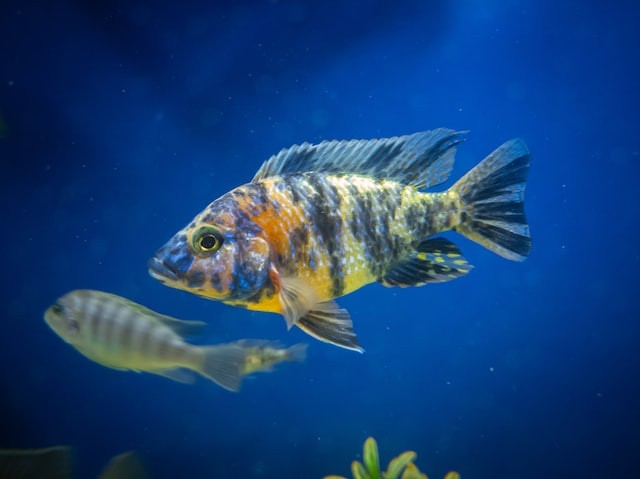Some female cichlid fish perform an extraordinary act of motherhood by carrying their eggs and young for around two weeks in their mouths. The juvenile fish and fish-in-waiting are so shielded from predators from the outside world.
This fish eats its own offspring

According to Peter Dijkstra, a biologist at Central Michigan University and a co-author of the study, the females are benefiting something from feeding their young, not only in terms of physical condition but now even something that may improve their health, as per Smithsonian.
In addition to revealing this cannibalism, a recent study suggested that mothers of fish that consume their own young lessen the cell damage brought on by mouthbrooding, according to James Ashworth for London's Natural History Museum.
Astatotilapia burtoni, a fish from central Africa, must undergo physiological strain to raise its young. They cannot eat or breathe normally during mouthbrooding.
According to Karen Maruska, a biologist at Louisiana State University who studies A. burtoni, the work adds an intriguing component to the puzzle about how these mouthbrooding females could survive and maintain their own health during two-week brooding period while they can't eat. But he made no contributions to the recent study.
Not only A. burtoni fish eat their offspring; this behavior is known as filial cannibalism. Male common goby and barred-chin blenny fish eat part of the eggs they are supposed to be guarding. Guppies also consume their own young.
According to the Natural History Museum, various insects, birds, reptiles, amphibians, and mammals have also been seen consuming their young.
Not only A. burtoni fish eat their offspring; this behavior is known as filial cannibalism. Male common goby and barred-chin blenny fish eat part of the eggs they are supposed to be guarding.
Guppies also consume their own young. According to the Natural History Museum, various insects, birds, reptiles, amphibians, and mammals have also been seen consuming their young.
The scientists concluded that the disappeared offspring had been consumed. Jake Sawecki, a researcher at Michigan State University and the study's primary author, tells New Scientist that although they might have been dropping them, he never observed them doing so despite watching them for hours every day.
Fish that were mouthbrooding showed greater concentrations of reactive oxygen species (ROS), which can harm DNA. The fish that consumed more of their offspring also had more of the dangerous substances. They might have received antioxidants as a result to balance the ROS imbalance.
The Practicing of Cannibalism Is Common to animals
In zoology, cannibalism is the act of one member of the same species consuming another. Cannibalism is frequently used as a population control or genetic contribution assurance strategy. Certain ants often devour immature victims of injury, as per Britannica.
The surviving healthy immatures are the colony's first resort when food is scarce. The adults can continue to live and reproduce thanks to this approach even during times of food shortage.
The moms who lose their cubs will more quickly become impregnated by the new dominant males when lions take control of a pride.
Existing young may be killed and eaten by lions taking control of the pride. Aquarium guppies manage their population size by devouring most of their offspring.
Related Article: Underwater Cannibalism: Hungry Baby Starfish Devour Each Other For Survival
© 2026 NatureWorldNews.com All rights reserved. Do not reproduce without permission.





